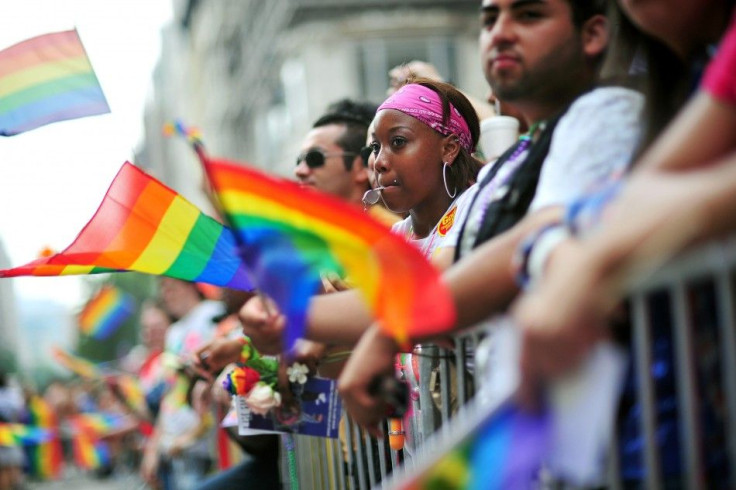New York Gay Marriage Push Enters Final Week

With the end of its legislative session looming, the New York Senate is scrambling to settle the fate of a bill that would legalize gay marriage.
Three vacillating Democratic senators who voted down the measure in 2009 today announced their support, giving the Democrats a nearly unified front and putting the onus on Senate Republicans, who hold a slim majority. The legislative session ends on June 20 and Governor Andrew Cuomo, who made same sex marriage a central tenet of his campaign platform, is pushing for a vote.
It is unclear whether Cuomo will seek to build on this momentum and advance a bill. He has said he wouldn't do so unless he was sure he had necessary votes, but some gay marriage advocates are urging him to do so in order to goad undecided senators into action. Now that the three Democrats have backed the legislation, the outcome of a vote will rest largely on five Republicans who are the remnants of the so-called Undecided Eight. The New York Post's Fred Dicker cited anonymous sources indicating that several Republican senators, including some surprising names from conservative upstate areas, could be ready to vote for the bill.
Debate over the bill has spurred an all-out lobbying campaign from both sides, with grassroots advocates mounting an ambitious canvassing campaign and religious groups holding rallies to oppose the law.
It has also galvanized political forces throughout the state. New York City Michael Bloomberg has argued passionately for the bill, saying in a speech that the next great barrier standing before our generation is the prohibition on marriage for same-sex couples. Republicans have been weighing the cost of alienating the influential Conservative Party, a party kingmaker that is headed by a little-known, staunch opponent of same-sex marriage.
The Conservative Party is a political party in its own right but usually does not field its own candidates, choosing instead to mostly endorse Republicans.
Regardless of the final vote tally, the margin is sure to be thinner than in 2009, when a gay marriage bill was defeated 38 to 24.
© Copyright IBTimes 2025. All rights reserved.




















